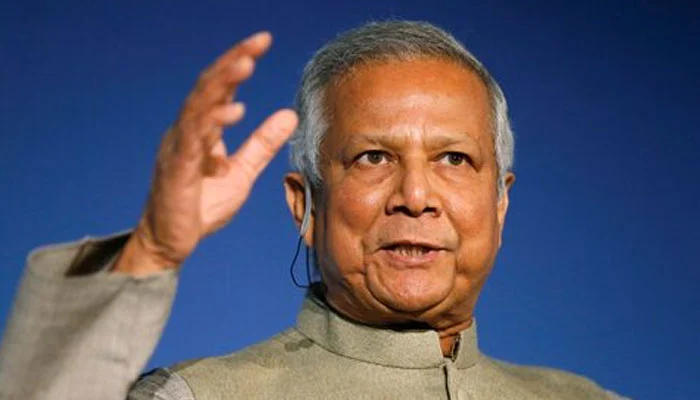Bangladesh’s interim leader, Muhammad Yunus, “needs to remain” in office to ensure a peaceful transfer of power, a cabinet member and special adviser to Yunus stated on Friday. Yunus, the 84-year-old Nobel Peace Prize laureate who assumed leadership following a widespread popular uprising last year, had reportedly threatened to resign if he did not receive support from political parties, according to a political ally and sources within his office.
The South Asian nation has been embroiled in political instability since the student-led revolt in August 2024 that ousted then-prime minister Sheikh Hasina, with various parties demonstrating in the streets over a range of demands.
Faiz Ahmad Taiyeb, a special assistant to Yunus and head of the Ministry of Posts, Telecommunications, and Information Technology, posted on Facebook, “For the sake of Bangladesh and a peaceful democratic transition, Professor Yunus needs to remain in office.” He further added, “The Chief Adviser is not going to step down. He does not hanker after power.” He later deleted his post.
Bangladesh’s political crisis intensified this week, with opposing parties staging protests in the capital, Dhaka, each with their own set of demands. Yunus’s reported intention to step down surfaced after thousands of supporters of the influential Bangladesh Nationalist Party (BNP) rallied in Dhaka on Wednesday, holding large-scale demonstrations against the interim government for the first time.
Yunus has pledged that elections will be held by June 2026 at the latest in the Muslim-majority country of approximately 170 million people. However, BNP supporters – widely considered front-runners in the highly anticipated elections, which will be the first since Hasina’s overthrow – have demanded he set a definitive date.
A Period of Turmoil and the Military’s Position
Yunus’s relationship with the military has also reportedly deteriorated. According to local media and military sources, army chief General Waker-Uz-Zaman stated on Wednesday that elections should be held by December, warning that Bangladesh was in a “chaotic phase” and that the “situation is worsening by the day.”
Taiyeb issued a warning to the army on Friday. “The army can’t meddle in politics,” he wrote. “The army doesn’t do that in any civilised country,” he added. “By saying that the election has to be held by December, the military chief failed to maintain his jurisdictional correctness.”
The army played a crucial role in the end of Hasina’s rule by not intervening to suppress the uprising, after at least 1,400 protesters were killed in a police crackdown. It was Waker-Uz-Zaman who announced that Hasina had been overthrown, with the military briefly taking control before handing over to Yunus.
The army issued a statement late on Thursday, which it said was intended to counter those seeking to create divisions between the military and the public. “Some vested interest groups are circulating misleading information and trying to create a divide between the army and the general public,” the army said in its late Thursday statement. It released a list of hundreds of people it had briefly sheltered inside army bases during the tumultuous days following Hasina’s ouster “to save them from extrajudicial killings.” Among those the army stated it sheltered to “save lives” were 24 political figures, as well as judges, civil service staff, academics, and over 525 police personnel. The army did not provide details on those it accused of attempting to undermine its support.
The National Citizen Party (NCP) – comprised of many of the students who spearheaded the uprising against Hasina, and a group close to Yunus – has previously accused the army of supporting Hasina’s Awami League party.
Hasina, 77, remains in self-imposed exile in India, where she has defied an arrest warrant to face trial for crimes against humanity related to the police crackdown. The government banned the Awami League this month after protests outside Yunus’s residence, a move that drew criticism from Human Rights Watch, which termed it an “excessive restriction on fundamental freedoms that mirrors the previous government’s abusive clampdown.”



